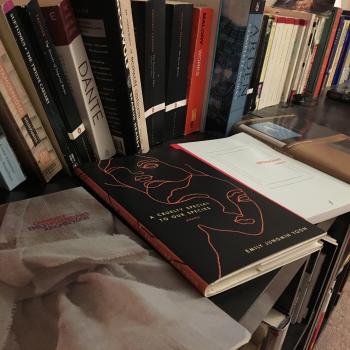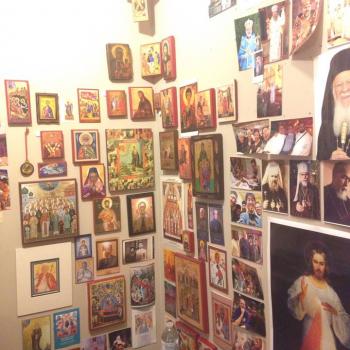![Justin Trudeau at the Vancouver Pride Parade 2015 - by vl04 (Justin_Trudeau_at_the_Vancouver_LGBTQ_Pride_2015) [CC BY 2.0 (https://creativecommons.org/licenses/by/2.0/)], via Flickr](https://wp-media.patheos.com/blogs/sites/721/2015/10/Justin_Trudeau_at_the_Vancouver_LGBTQ_Pride_2015-1024x683.jpg)
The running gag that I use on social media is that I support all the Canadian political parties. Of course I have political convictions – even Canadian ones – but there’s no way I could survive in my hometown of Richmond, British Columbia without a sense of humor as a Chinese Christian and secular academic at the same time. For that matter, I wouldn’t make it in my other hometown of Fremont, California either, but their election is next year; I’ll deal with that one then.
My social media news feed literally exploded when it became clear that the election of Liberal Party of Canada’s majority in the Canadian House of Commons had sent the baby-faced, stair-falling, heart-on-sleeve Justin Trudeau to the Prime Minister’s Office. Trudeaumania is consuming the two sides of my life: ‘Chinese Christian’ and ‘secular academic.’
Most of my ‘secular academic’ friends were, for the most part, cautiously delighted. Some were expats, which meant that they weren’t living in Canada and couldn’t vote in this election – Trudeau’s promise that they could next time around earned him their virtual support. For those in Canada, many had voted ‘strategically.’ Most of my friends updating their feeds were far more left than left-of-centre – mostly New Democratic Party (NDP), some Green, and a few out for all-out anarchy. But most had voted for the Liberals in an effort to prevent vote-splitting among the left-of-centre parties. They then clarified on Facebook and Twitter that they weren’t really hoping for such an overwhelming Liberal majority under Trudeau; they had really been more for kicking Stephen Harper and his political ideology of strong community security out of office. This objective had been epically accomplished, and now they’re – after the election – they’re starting to look into Trudeau’s campaign promises.
I should be clear that these ‘secular academic’ friends weren’t all non-religious. In fact, some of the most vocal ones were my white Canadian evangelical friends. Believe it or not, there are white evangelicals who work in secular academia and hold to both evangelical theological persuasions and social democratic political leanings – which, of course, means that a ‘moral’ vote for them is really for the NDP and the Greens. They’re secular not because they’re non-religious, but because they work in a site not governed by the church. What this means, of course, is that it’s perfectly possible to be secular and have strong theological convictions.
That’s an important working definition because I still maintain personal and professional ties with another community in addition to my secular academic one: Chinese Christians. I happen still, as a secular academic, to confess faith in all of the early church’s ecumenical creeds. Lest my evangelical friends ding me on the Bible count, I should clarify that these creeds are derived from extended reflection on the canonical Hebrew and Christian Scriptures; where else would you get doctrines like the bodily resurrection, the Triune God, the consubstantiality of the Son with the Father, the Mother of God, the two natures of Christ, etc.? I am also of Cantonese and Shanghainese extraction, which, combined with my way-too-orthodox Christianity, makes me in all technical senses a ‘Chinese Christian.’
Being Chinese Christian has a social dimension too. I’m part of the Christian church in the broadest of senses, which means that I actually attend the worship gatherings of the church, and at a practical level, that means that I’m plugged into all manner of Chinese Christian communities too, ranging from non-denominational churches to Anabaptist communities to the Anglican Communion to the Roman Catholic Church to a Byzantine Catholic parish that’s like the best-kept secret in Richmond. Part of this is professional too – I wrote a dissertation and am churning out articles (maybe even a book someday!) on Cantonese-speaking Protestants and how they engage the public sphere, which means I couldn’t get away from these people even if I tried.
If my ‘secular academic’ friends are cautiously celebrating Trudeaumania, my ‘Chinese Christian’ brothers and sisters are, for the most part, having a meltdown. This isn’t to say that the new Liberal Majority has made all ‘Chinese Christians’ unhappy – I, for one, am not complaining very much, and it seems like many of my younger, English-speaking friends who happen to be ethnic ‘Chinese’ and theologically ‘Christian’ are openly celebrating a return to an ‘open government’ and ‘real change’ – this includes friends that I would have pegged as right-of-centre.
But if you read the social media status updates of some of the major players in institutional Chinese Christian, you might think that the end of the world has come. At some level, you could say that much of the hard work that they’d done since the late 1990s in spreading the Conservative Party ideology of private security within Chinese Christian circles had gone down the drain, except for the small consolation that Conservative Member of Parliament (MP) Alice Wong hung on to her seat in Richmond Centre (her Conservative friends in other Lower Mainland ridings did not). This was especially impressive because her website looked like this.
The catch is that many of the Chinese Christian reasons for apocalypse now, as I noted in my dissertation, weren’t terribly ‘Christian’ in a theological sense. One commentator wrote on my wall that I should get ready for more refugees at a time when we couldn’t manage our own problems, higher taxes, and a government ready to take our guns away (the last of which made me wonder what kind of ‘national’ foothold the National Rifle Association has in the nation-state of Canada). Another sputtered that when the electorate makes terrible decisions, everybody has to suffer the terrible consequences. Still another told me that he’d move to the United States and look forward to having a President Drumpf. No doubt in the coming days, I’ll hear about how the Canadian nation will disintegrate through a combination of legalized marijuana getting everyone high, the Islamic State invading, and euthanasia killing the rest of us off – and topping everything off, higher taxes.
It turns out that I probably made the right decision after all to keep saying on my own Facebook that ‘I support all the parties.’ I even did it faux liturgically, although most of my apocalypse-now friends are of the free church variety:
V. Which party do you support, Justin?
R. All of them.
My friends who don’t share my community ties informed me promptly, of course, that my epically fence-sitting politics were boring and perverse. Sure, I voted, but quietly, discreetly, and – dare I say – with both strategy and conviction.
In this next series of posts, I want to think publicly about what it means to be caught between ‘secular academia’ and ‘Chinese Christianity’ in light of Trudeaumania. Why do I say that I support all the parties? Is it really epic fence-sitting? And why is it that my ‘secular academic’ friends on the left are so theological while my ‘Chinese Christian’ brothers and sisters on the right are so secular?
Stay tuned, especially because I’m going to argue in the next post that Justin Trudeau himself supports all the parties.












